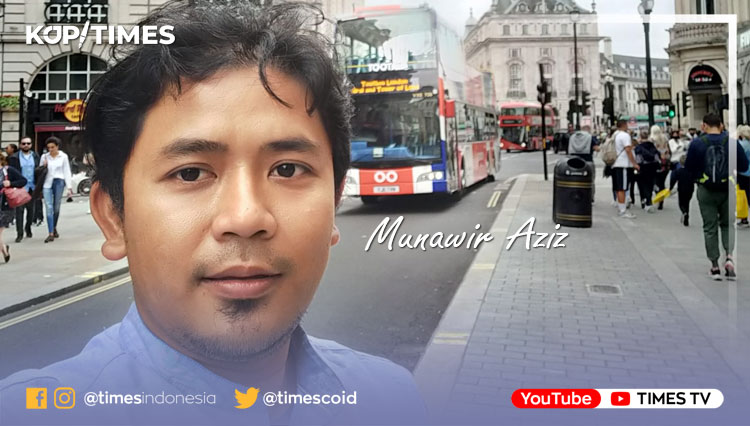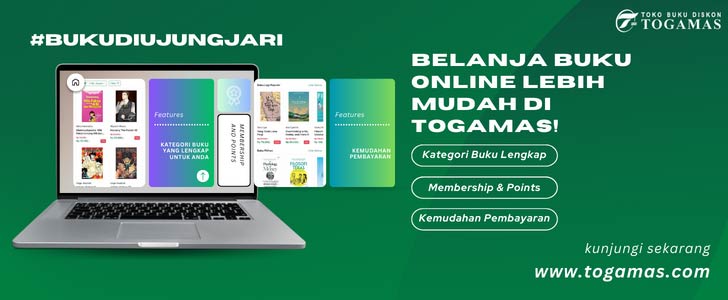Islam Indonesia, Soft Power, and Peace Diplomacy

TIMESINDONESIA, JAKARTA – When talking to the former British Ambassador to Indonesia, Timor-Leste and ASEAN, HE Moazzam Malik in London, February 2020, the writer got a spirit injection to expand da’wah of Islam Indonesia in overseas, especially the UK and Europe. We met at British Islam Conference. This is an important meeting between Ambassadors, several think-tanks, country leaders, and peace activists.
At that meeting, the writer also discussed with several peace diplomacy experts, such as Prof. Peter Mandaville, Prof. Ebrahim Moosa, Hossein Dabbagh, and Stephen Hoffman. After the meeting, Moazzam Malik hosted a dinner for us, the writer, Alissa Wahid, and some friends at a Restaurant in Oxford Street, London. He told us the stories when he worked as an Ambassador for Indonesia.
Moazzam narrated that he visited a lot of regions in Indonesia. He also met with several muslim scholars and religious leaders. He saw through living in Pesantren (Islamic boarding school) as well as having dialogs with some santri (students living in a Pesantren) in various Pesantren. Moazzam admitted that he is impressed by the moderatism in Islam Indonesia shown by Islamic Organizations in Indonesia, particularly Nahdlatul Ulama (NU) and Muhammadiyah.
Therefore, Moazzam advised us to spread the value of Islam Indonesia in the UK and Europe. He explained to us that the UK and Europe needs the spread of Islam which appraises the compassion, moderatism, and affection.
In the UK, muslim communities face huge challenges both from external and internal organizations. The challenge from internal communities for instance are radicalism and unthorough comprehension of Islam. There are numerous muslim communities in the UK which interpret Islamic values textually without considering the context like British culture.
ISIS (Islamic State of Iraq and Syria) in social media also gives a huge negative impact to Islam. Also, many muslim in the UK influenced by ISIS campaign then divert their donations to ISIS instead of to the local mosques or muslim communities. Also, many of them then go to Syria and join ISIS paramilitary.
When I visited mosques in the UK, I saw that some Imams (the leader in the mosque) interpret the Qur’an textually in their speech. Therefore, the community isolate themselves and cannot blend in with the rest of the society.
On the other hand, the external challenges are the increasing of the populism in both politic and religion. Populism in politic boosts hate issues in competitions. In the last few years, there are some politicians using religious sentiment in their political campaign to attract voters and gain benefit from polarisation.
This condition is happened in the UK and several countries in the Europe. There is threat of the strengthening of radicalism in conjunction with the increasing of populism in politic. Londom Bombing in 2005, Paris violence in October 2020 tell us the urgency of peace discourse and intensive interfaith communication. Then, how does Islam Indonesia respond those situations in context of religious relation globally?
Peace Diplomacy
Muslim communities in Indonesia have developed the peace diplomacy since long time ago. In the South East Asia, NU and Muhammadiyah both are involved in some peace effort works and conflict resolutions. NU’s kiais (Scholar and leader) and some key figures from Muhammadiyah are continually express peace effort by real actions in mediations, coordinations, and building the ukhuwah (relationship).
Muhammadiyah made a big contribution in the process of bringing peace in Mindanao, South Philippines, and conflict resolution in South Thailand. Muhammadiyah also actively involved in reconciliation process of Abu Sayyaf’s separatist movement. In Thailand’s conflict, soft power approach has been used in the process to reach peace.
Meanwhile, NU have had concern in the reconciliation process in the middle east and in global level since decades ago. NU’s kiais have dreamed about the reconciliation between Israel and Palestine. This dream then is translated into interfaith dialogs; Jewish, Christian, and Islam. Abdurrahman Wahid (Gus Dur) is one of the NU’s kiais who has endeavoured to Israel-Palestine peace for decades. He initiated few programs and integration among interfaith key figures.
Israel-Palestine conflict shapes today’s world face by increasing the violence escalation in some countries. Therefore, the resolution and strengthening deradicalization programs will not be comprehensive unless including Israel-Palestine conflict into consideration. Hence, Gus Dur pioneered some programs to enhance communication between parties, Israel and Palestine. Gus Dur argued that we have to be trusted by both parties in order to resolve the conflict.
After Gus Dur passed away, NU continually focus on bringing peace between Israel and Palestine. Prof. KH. Said Aqil Siroj, KH Yahya Cholis Staquf (Gus Yahya), Yenny Wahid, and numerous other muslim key figures are actively promote global peace in the last few years. On June 2018, Gus Yahya was invited by American Jewish Committee (AJC) to give a talk in Jerusalem. Gus Yahya emphasized the important of bringing back the value of rahmah, compassion into religions.
In the same occasion, Gus Yahya met Israel’s Prime Minister, Benjamin Netanyahu. In front of Benjamin, Gus Yahya highlighted Palestine’s sovereignty. Gus Yahya explained that this is the biggest concern of Muslims in Indonesia. Furthermore, Gus Yahya also pointed out the about the urgent of bringing peace between Israel and Palestine.
Islam Indonesia’s Soft Power
Indonesia has the biggest chance to be a peacemaker for Israel-Palestine’s conflict and to be a mediator for various international’s conflicts. The fact that Indonesia is a country with the biggest muslim in the world, is a crucial asset that should be maximally used. The values carried by Islam Indonesia, which are rahmatan lil-‘alamin, moderatism, washatiyyah, and other importan values, are the fundamental key to promote peace in global level.
In inter relation between countries, particularly in global affair regions, religion has been used as a soft power. The progress in the relation among Saudi-Iran, Turkey, Israel, Palestine, and other countries has proved that religion, in statecraft context, might be used as a soft power (Peter Mandaville & Shadi Hamid, 2018).
Indonesia also has an opportunity to maximize the power of muslim community in the country as a soft power. Moreover, NU’s kiais have some values which might be used as guidance: ukhuwwah islamiyyah (the brotherhood between muslim), ukhuwwah basyariyyah (the brotherhood between mankind), and ukhuwwah wathaniyyah (the brotherhood in nationality). These values form an important asset to knitting peace globally.
We should maximize the collaboration for peace diplomacy; among governments, muslim organisations, and international network. Santri diaspora who spread in all countries over the world are able to strengthen the public diplomacy, together with government’s ambassadors and Indonesian’s Embassies network.
It is the time to enhance the public diplomacy by maximizing the extensive potential from santri diaspora who spread in more than 35 countries. The initiatons should be made to move the knots and then activate them to be key players in public diplomacy orchestrated in line with the visions that belongs to Indonesia.
Of course, we have big homework: maintaining the peace in the country as well as strengthen the diversity (kebhinekaan). The brotherhood inter religion, inter mankind, and the brotherhood inter nation should be constantly enhanced. The energy of kindness should be outperforming the energy of hatred. (*)
**) Ikuti berita terbaru TIMES Indonesia di Google News klik link ini dan jangan lupa di follow.
Advertisement
| Editor | : Yatimul Ainun |
| Publisher | : Ahmad Rizki Mubarok |


